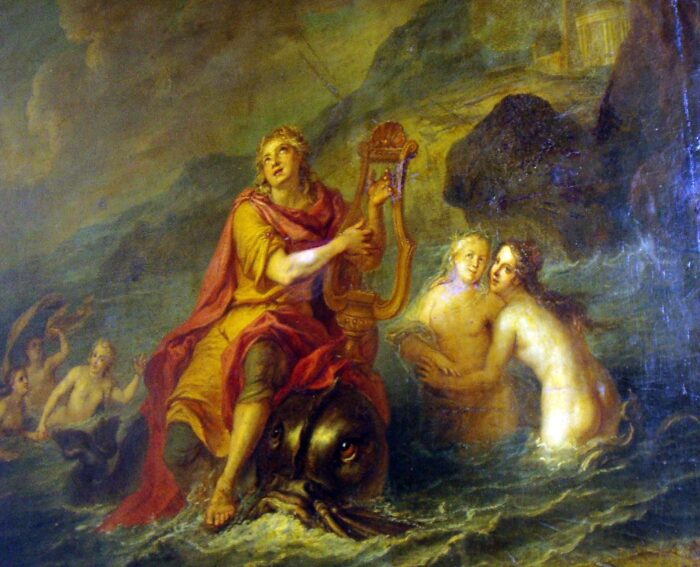Among the many tragic and beautiful stories of Greek mythology, the myth of Orpheus and Eurydice stands out as one of the most poignant explorations of love and death.
Orpheus, famed for his divine musical talents, was the ultimate lover and artist—his music could charm all creatures, mortal and divine alike, and even move the hearts of the gods.
His love story began with Eurydice, a nymph of unparalleled beauty and grace.


Their union was passionate and full of hope, but fate dealt a cruel hand. Soon after their wedding, Eurydice was bitten by a venomous snake and died, plunging Orpheus into overwhelming grief.
Refusing to accept her death as final, Orpheus descended into the Underworld itself—the realm of Hades and Persephone—to plead for her return.
Armed with only his lyre and the power of his music, he played so beautifully that even the grim rulers of the dead were moved.
The gates of the Underworld opened, and Hades granted Orpheus a chance: he could lead Eurydice back to the living world on one condition—he must not look back at her until they both had reached the surface.
The journey back was filled with tension and longing. Every step was heavy with hope and doubt, the fragile thread holding Eurydice’s fate tethered to Orpheus’s self-control.
But as they neared the light of day, Orpheus’s fear and desire overwhelmed him, and he glanced backward. In that instant, Eurydice vanished forever, pulled back into the shadows.
This myth captures the tragic limits of human will against the irrevocable laws of fate and death. Orpheus’s failure is both deeply human and heartbreakingly relatable—his love was immense, but his patience faltered.
The story also symbolizes the power of art as a bridge between worlds: Orpheus’s music temporarily softened the harshness of death, showing how beauty and passion can transcend even the darkest forces. But it is also a reminder that some boundaries—between life and death, past and present—cannot be crossed without consequence.
Orpheus’s subsequent life was marked by sorrow and wandering, until he too met a tragic end.
Yet, his legend endured, inspiring generations with the timeless themes of love, loss, and the enduring quest to defy mortality.



















Comments